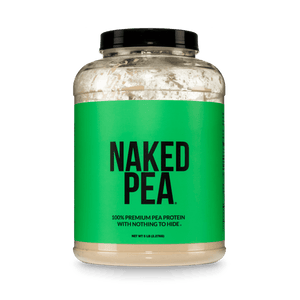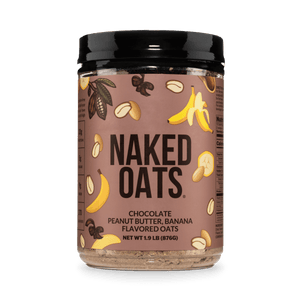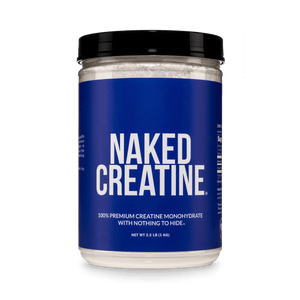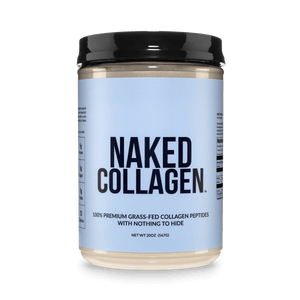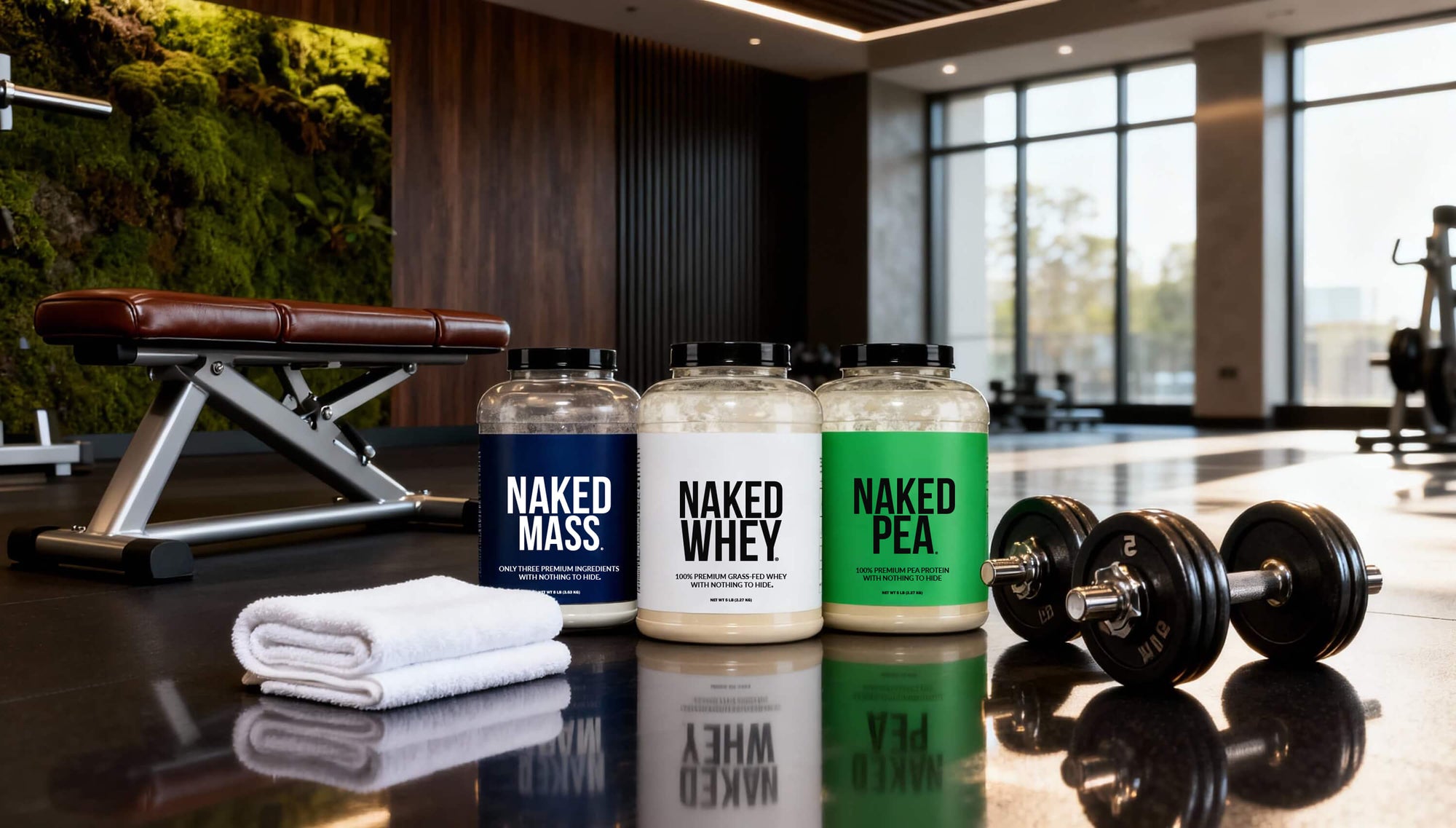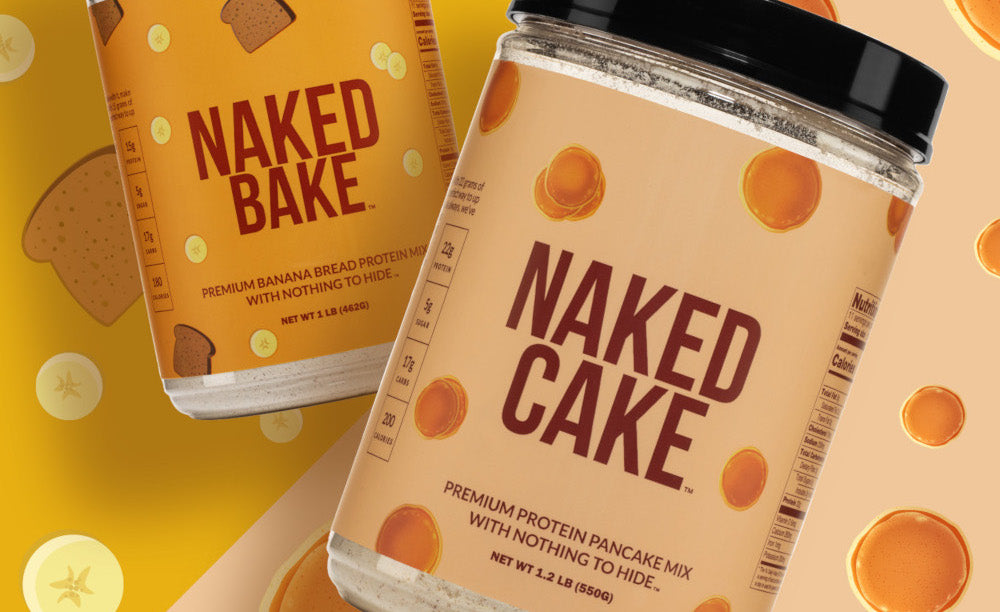If you’re looking for a new protein supplement, thinking about changing your protein routine, or even if you’re brand new to protein powders, casein protein might be right for you.
A lesser-known whey counterpart, casein protein offers many exciting health benefits. This article will explain what casein is, the two types of casein, its benefits, and how you can include it in your diet.
What is Casein?
Casein is a protein from milk that many people take as a supplement. Although whey protein is more frequently discussed, casein protein definitely deserves some attention for its many health benefits.
Plus, casein actually makes up 80% of the proteins found in milk, while whey protein makes up the other 20%. Both casein and whey protein are complete proteins, meaning they contain all nine essential amino acids required by the body.
Casein is a slow-digesting protein, which gives way to its particular health benefits. This is different from whey protein which is digested much more quickly.
Many studies have found that casein protein can help increase muscle growth, strengthen the immune system, and improve markers of cardiovascular health.
Slow vs Fast Digesting Proteins
Slow proteins like casein have the ability to slowly release amino acids since they are more slowly absorbed in the digestive tract. Because of this mechanism, many refer to casein as a “time-release protein”. This means that your cells are being fueled with amino acids slowly over a longer period of time.
A benefit of slow digesting proteins like casein is that it can help the body make protein and reduce muscle breakdown (1).
Plus, even when the body might start to break down muscles, during a period of fasting, for example, casein can help prevent muscle breakdown by helping cells to synthesize protein.
The Two Different Types of Casein
There are two different types of casein: micellar casein protein powder and casein hydrolysate.
Micellar casein is the most popular form of casein and is digested slowly. On the other hand, casein hydrolysate is already partially broken down and digested quickly (2).

Micellar Casein
In addition to being the most popular form of casein, micellar casein is also the most natural. Its protein structure is very similar to the protein structure of milk, as it has been minimally processed.
When micellar casein is consumed, the particles form small spherical shapes called micelles in the digestive tract. Micelles are hydrophilic (water-loving) on the outside, and hydrophobic (water-hating) on the inside. Because they are hydrophilic they can dissolve in water and also transport fat-soluble nutrients such as calcium and potassium.
When micelles are absorbed in the small intestine, the micelle breaks down and the protein and nutrients are then absorbed.
This digestion and absorption process takes a bit of time which explains the steady stream of amino acids that the body receives from consuming micellar casein.
Casein Hydrolysate
Casein hydrolysate is partially broken down, which makes it easier for the body to absorb it more quickly. The smaller, partially broken-down particles are called peptides.
As a result of being absorbed more rapidly compared to micellar casein, this form of casein leads to a more rapid rise in amino acid concentrations (3). It’s hypothesized that this rapid rise and sudden increase in amino acids in the body may be more than what the body can actually utilize at one time. Therefore, excess amino acids are delivered to the liver to be broken down.
However, the rapid digestion of casein is not necessarily a bad thing. There are times such as after an intense workout when a high dose of amino acids at a rapid rate can be helpful to fuel muscles and stop any muscle breakdown from occurring.
Benefits of Casein for Muscle Growth

Casein can reduce muscle and protein breakdown, thanks to the steady supply of amino acids it supplies to cells. After a workout, you can be assured your muscles are being fueled properly even hours after consuming a casein supplement.
Similar to other animal proteins, casein contains all the essential amino acids that muscles require for growth. Specifically, casein is high in an amino acid called leucine, which is a key player in promoting muscle protein growth (4).
Studies have found that people who supplement with casein may have greater muscle growth compared to those who supplement with whey. Additionally, some research suggests that casein may be effective at reducing fat loss, which can in turn improve body composition and metabolic health (5).
Other Benefits of Casein Protein
In addition to contributing to muscle growth, casein protein is simply a great source of highly bioavailable protein for the body.
In just one serving, casein protein provides about 26 grams of protein. Casein also contains other micronutrients like calcium and potassium. Here are some other ways casein can benefit your health:
Boosts Immune System
Studies suggest that compounds in casein offer potent anti-inflammatory effects which in turn can help the immune system cells fight off bacteria and viruses (6).
Antioxidant Benefits
Compounds in casein protein have been shown to neutralize free radicals and reduce their harmful cell-damaging effects, keeping us strong and disease-free (7).
Improved Satiety
Because casein is digested and absorbed slower than other milk proteins, it may increase satiety and help manage a healthy weight.
Improved Heart Health
Research suggests that compounds in casein may be effective at reducing blood pressure, cholesterol levels, and triglyceride levels (8).
The Best Sources of Casein Protein

Most dairy products contain casein, but the amount of casein will vary depending on the product’s protein content.
The best sources of casein include high-protein dairy products. Foods like milk, cheese, yogurt, kefir, and ice cream.
Dairy products that are low in protein such as butter and cream only have very small amounts of casein.
There are also many supplements that make it easy to consume casein protein. If you decide that a supplement is right for you, choose a high-quality product free of added sugar or artificial ingredients such as Naked Casein.
When is the Best Time to Take Casein?
Taking casein before going to bed can be helpful for muscle recovery while you’re sleeping. This is especially effective if you engaged in a tough workout earlier that day, because your muscles will be craving protein.
Consuming casein protein right before bed is effectively digested and absorbed and can increase the amino acids available to your body overnight.
In general, muscle protein synthesis rates are low during sleep. However, taking casein prior to bed can actually increase muscle protein synthesis at night, optimizing your muscle growth and recovery (9).
Casein Protein vs Whey: What's the Difference

Casein and whey are both proteins that are found in milk. As noted earlier, casein makes up 80% of the protein found in milk, while whey makes up the other 20%.
While both are complete proteins, casein is digested slowly, while whey protein is digested and absorbed much more rapidly.
The rapid absorption of whey leads to a rapid increase in amino acid concentrations in the body, making it typically considered the superior protein at stimulating muscle protein synthesis.
It’s impossible to say that whey or casein is better, because after all, they offer different benefits and results.
If you’re an elite athlete or getting serious about your strength training routine, you would likely benefit from a combination of both casein and whey.
If you’re frequently on the go, casein might be your best bet as it might help keep you full and fueled for several hours. If you’re looking for a quick protein shake before or after your workout, whey protein might be best.
However, it’s important to choose the protein that best suits your needs and goals.
Key Takeaways
Casein protein is a complete, high-quality protein source found in milk.
It’s a popular dietary supplement that can help increase muscle growth and speed recovery after a workout. Casein also offers many health benefits such as improving body composition, boosting the immune system, and improving metabolic health markers.
Incorporating a casein protein supplement into your routine is easy and can help improve your health and help you reach your fitness goals.

